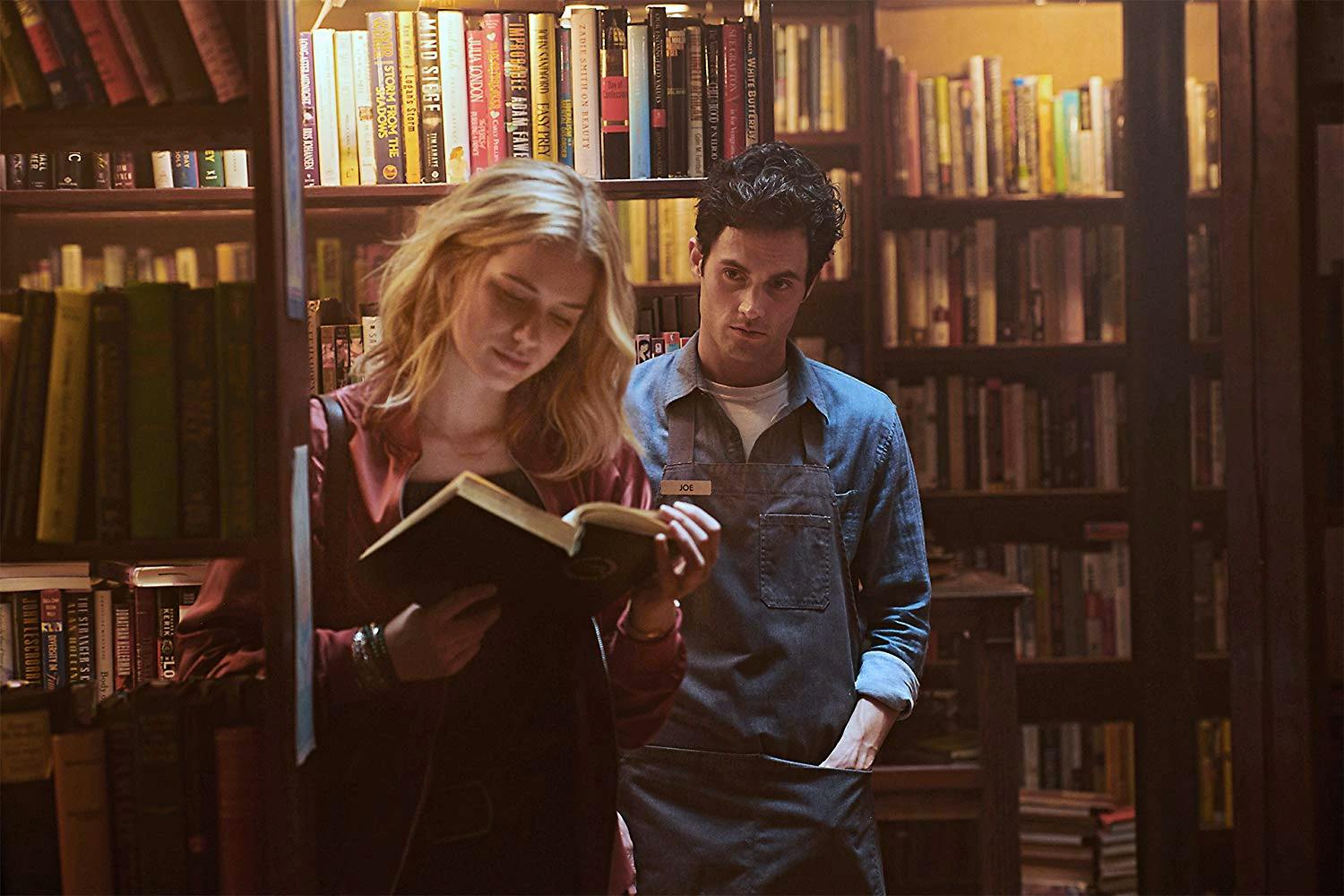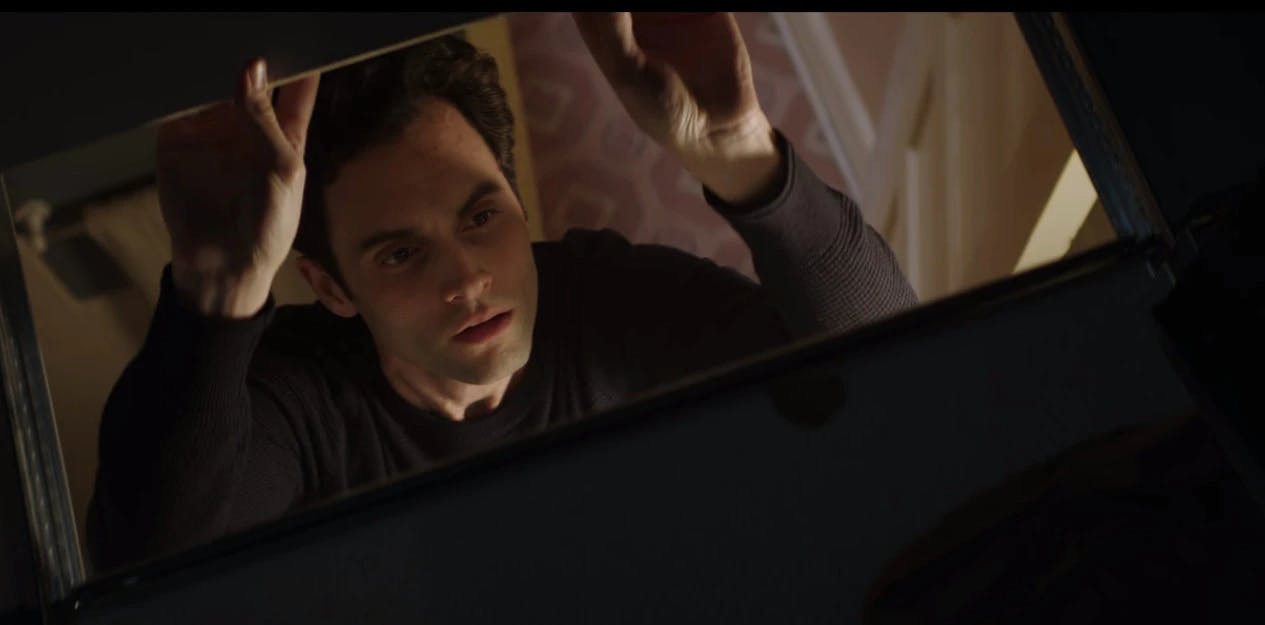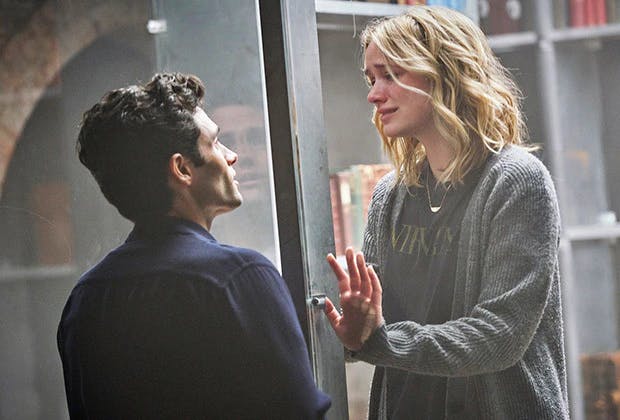The Danger Of Shows Like Netflix’s "You"
The very definition of a guilty pleasure, Netflix’s "You" is an exciting watch, providing its viewers with romance, suspense, wardrobe envy, and fantastical (read: unrealistic) depictions of living in New York City. But is this wildly popular show actually dangerous for us?

Warning: Spoilers ahead!
When I started watching the first season of You last year, I was instantly sucked in. Its main female character, Beck, possessed so many qualities I identified with: her love of books and stories, her aspirations of becoming a writer, her crippling self-doubt, her inability to understand her worth, and her need for deep personal relationships.
Not to mention, Beck was the object of Joe Goldberg’s (a seemingly shy, sweet, smart bookshop manager) affection. Quickly enough, it’s revealed to us that Joe isn’t like other guys—he’s kind of a stalker. Okay, no big deal…he’s still cute, right? A few more episodes in, and we can add “murderer” to his description. Yet, somehow, the viewer doesn’t hate him yet…in fact, strangely enough, we’re rooting for him.

Why We Want To Give Joe Goldberg a Pass
The truth is, Joe is every woman’s dream - he’s intelligent, loves poetry, cares about kids, wouldn’t dream of ghosting us, and seems to always have something sweet to say. He feels like a breath of fresh air, the total opposite of every other guy we’ve wasted our time on. Joe is the guy who wants nothing more than to please us, and he isn’t afraid of commitment.
Joe is the guy who wants nothing more than to please us, and he isn’t afraid of commitment.
So when he starts stalking Beck, steals her phone in order to keep tabs on her, and breaks into her apartment to look through her belongings, we’re ready to defend his motives for doing so. After all, he just wants to protect her…and who doesn’t want to be at least a little bit obsessed over? And when he murders Benji, it’s okay, because Benji was a bad guy who had no regard for Beck’s thoughts or feelings, a guy who saw her as a convenient object. And when he murders Beck’s best friend, Peach? Well, she was onto his scheme! He had no real choice but to off her, right?
The Rise of the Antihero
You is hardly the first story whose charismatic protagonist isn’t exactly someone to emulate - the Joker from Joker and Walter White from Breaking Bad are two perfect examples. Using a corrupt, immoral, destructive character as a protagonist is the newest way to be provocative, to push audiences into uncomfortable territory as they find themselves siding with evil. But what You does differently from Breaking Bad and Joker is appeal directly to women’s deepest desires and weaknesses. We’re willing to excuse - and even sympathize with - Joe’s obsessive, violent, and toxic behavior because in all other areas he so perfectly represents the qualities we as women long for in a man.

But Joe Goldberg isn’t the first of his kind to have so many female admirers. Charles Manson, a 1960s cult leader in Los Angeles, used charm and manipulation to draw numerous young women to pledge their allegiance to him and eventually commit murder under his orders. Ted Bundy (recently portrayed on the big screen by Hollywood sex symbol Zac Efron) was an infamous serial killer and rapist who allegedly received hundreds of love letters from women while he was in jail.
But wait…aren’t we supposed to hate men who use violence against women?
Why You Is Dangerous for Us
As a show marketed specifically to women in their teens and early twenties, the romanticization of destructive relationships, people, and behaviors as illustrated in You is deeply damaging to its target audience.
But what You does differently from Breaking Bad and Joker is appeal directly to women’s deepest desires and weaknesses.
You plays to the part of ourselves that thinks it’s sexy when a guy follows us home, obsesses over our every move, or would be willing to kill for us - whether we’re totally aware of it or not. It asks viewers to make peace with constant manipulation and to look past the very worst actions a human being can take. You never shows Joe suffering any real consequences, but instead paints his behavior as entirely justifiable and to be sympathized with - a trap women who’ve found themselves in abusive relationships know all too well.

Listen, we’ve all been attracted to the bad boy in some way, shape, or form; the guy who is no good for us, but something about him just pulls us in. Hollywood plays on those attractions. And while it may seem superficial, the truth is that beneath the drama and fun of You, there is a real message of destruction. Telling a young, impressionable generation of women that clearly criminal and toxic behavior from men is something to desire in a relationship can only have harmful effects.
Closing Thoughts
The stories we consume as a culture have deep and lasting effects on us. And if we’re not thoughtful about the narratives we feed our minds, it can end up hurting us. While perhaps for many, You is just a fun, silly show to binge on a Friday night, for those of us more vulnerable to influence, it’s far more detrimental in the long run.